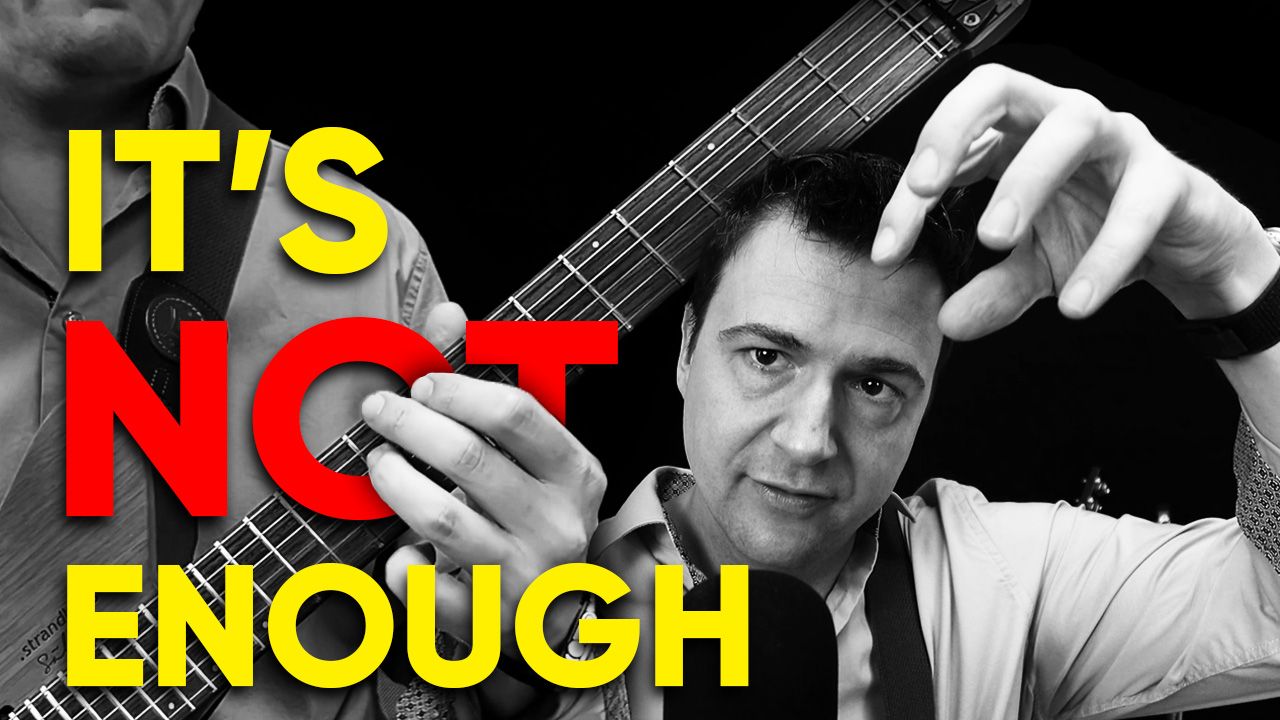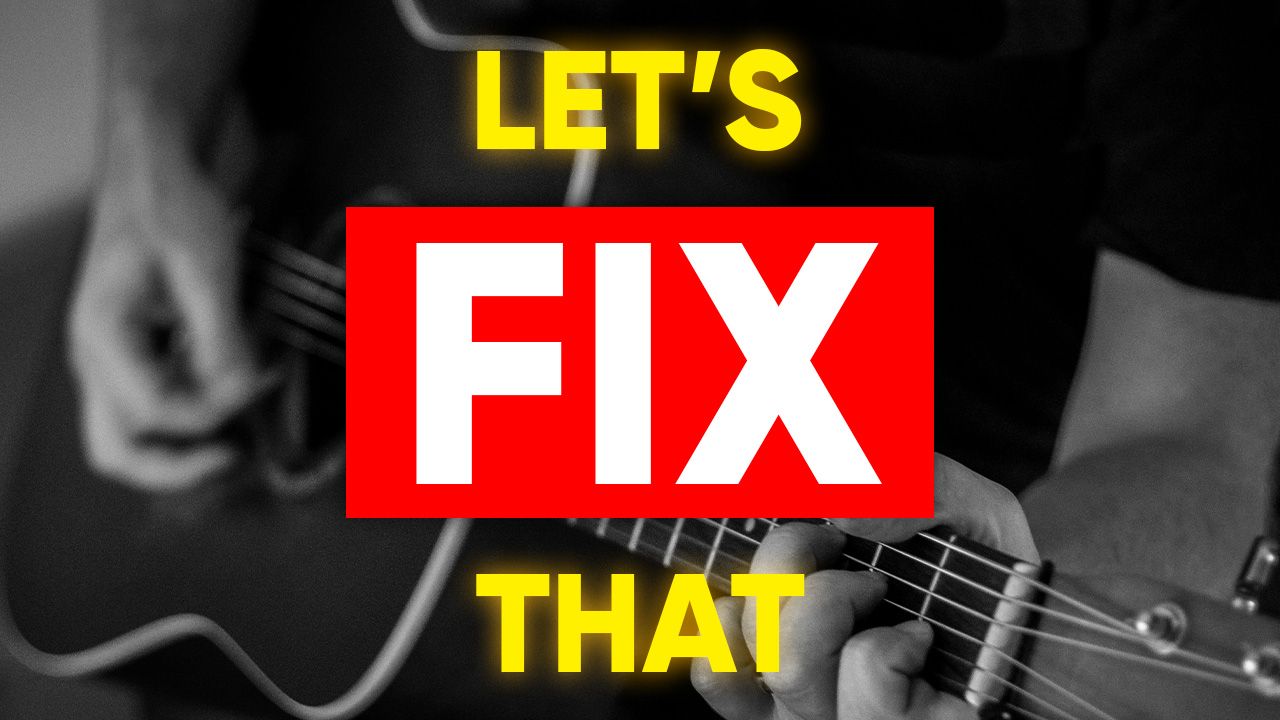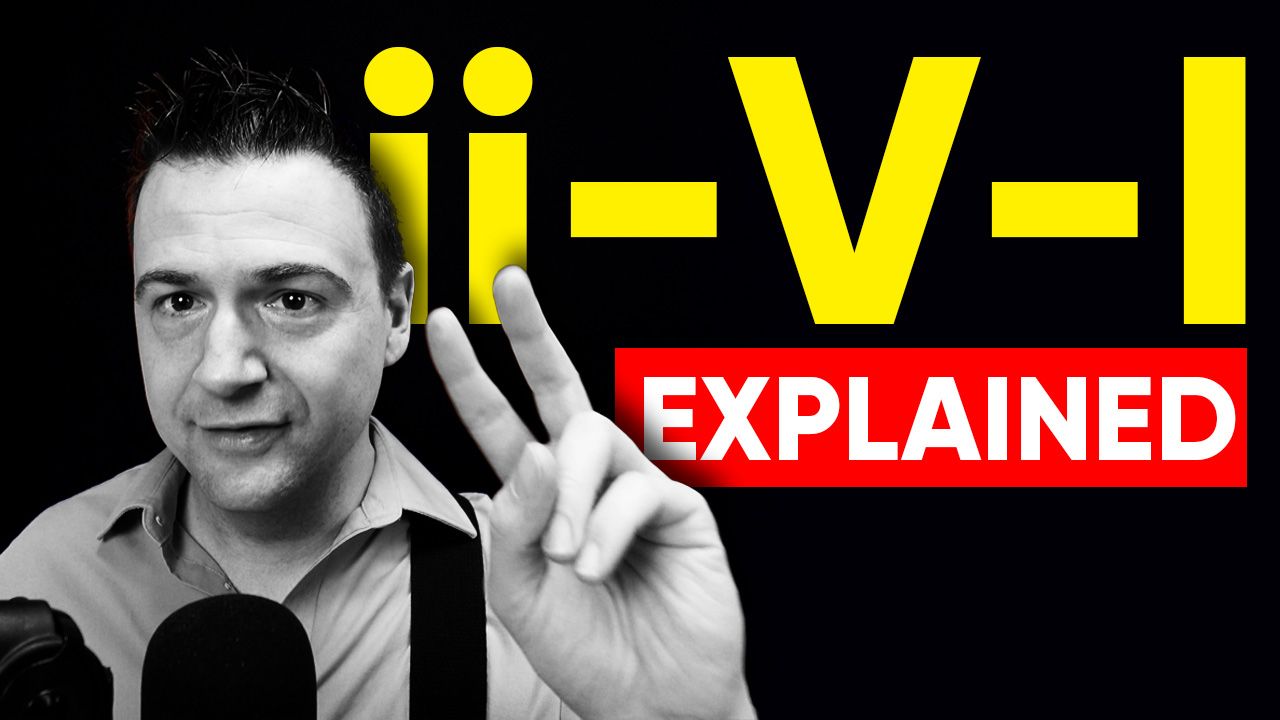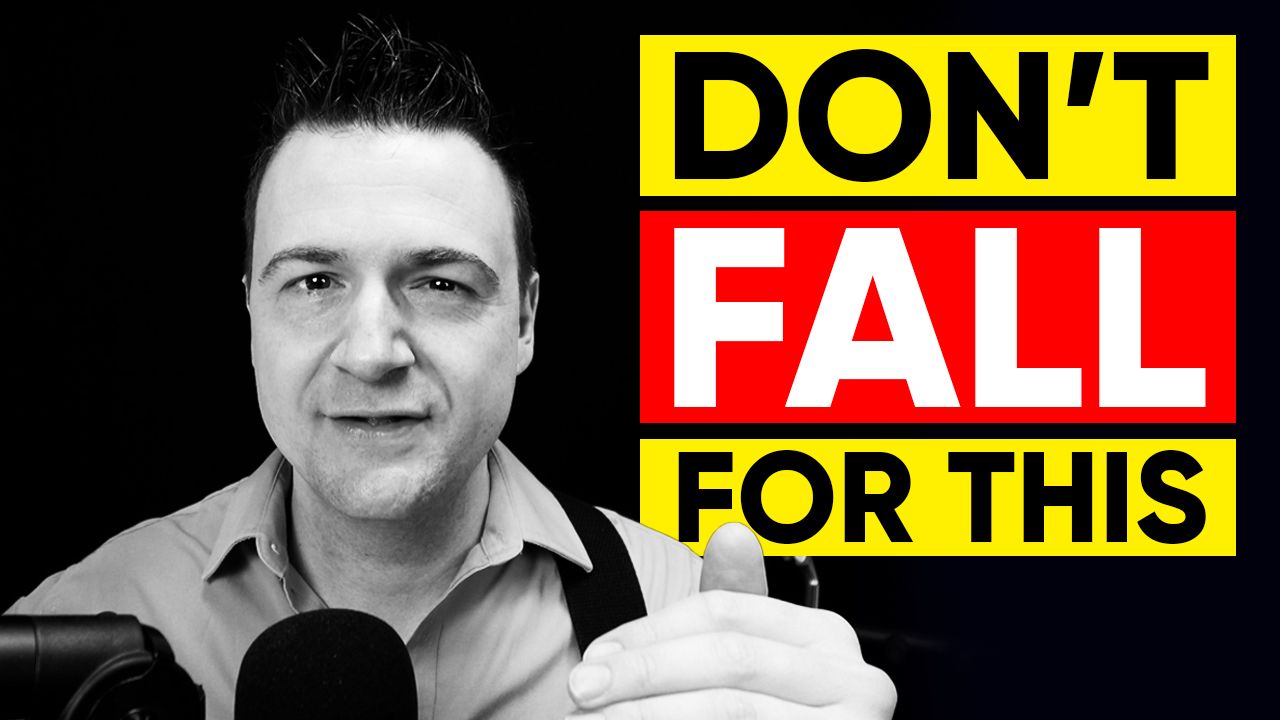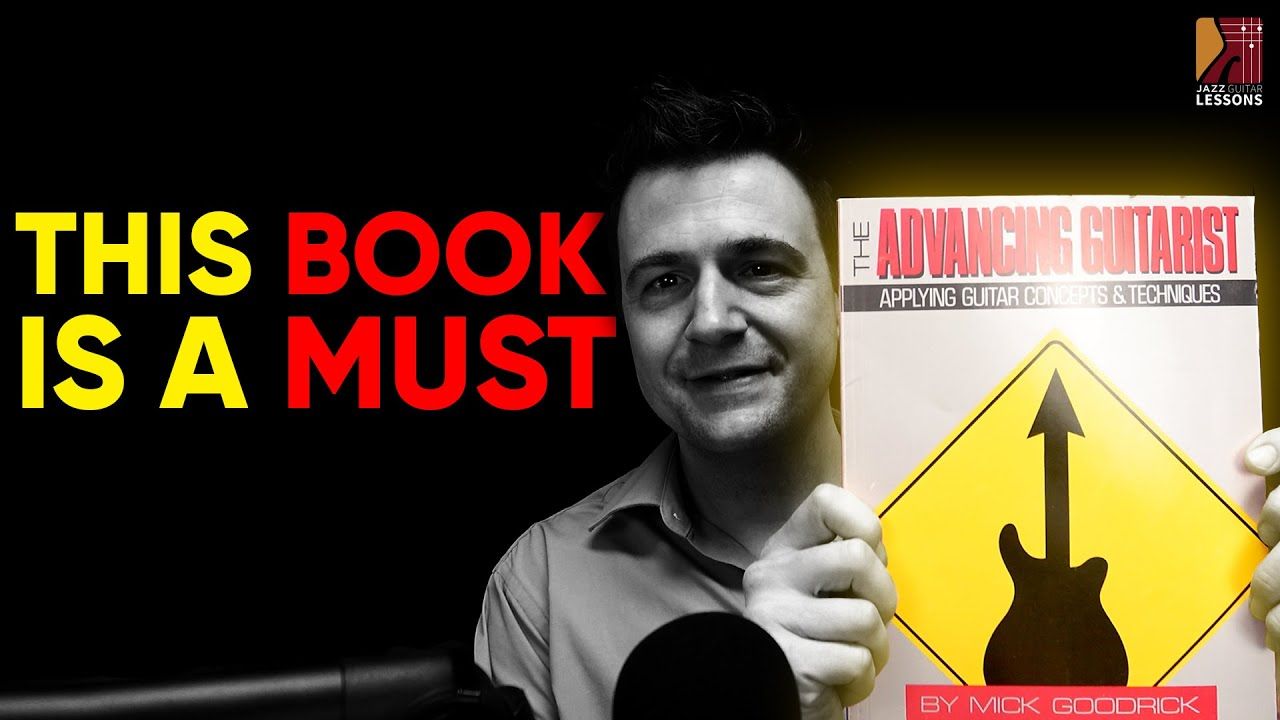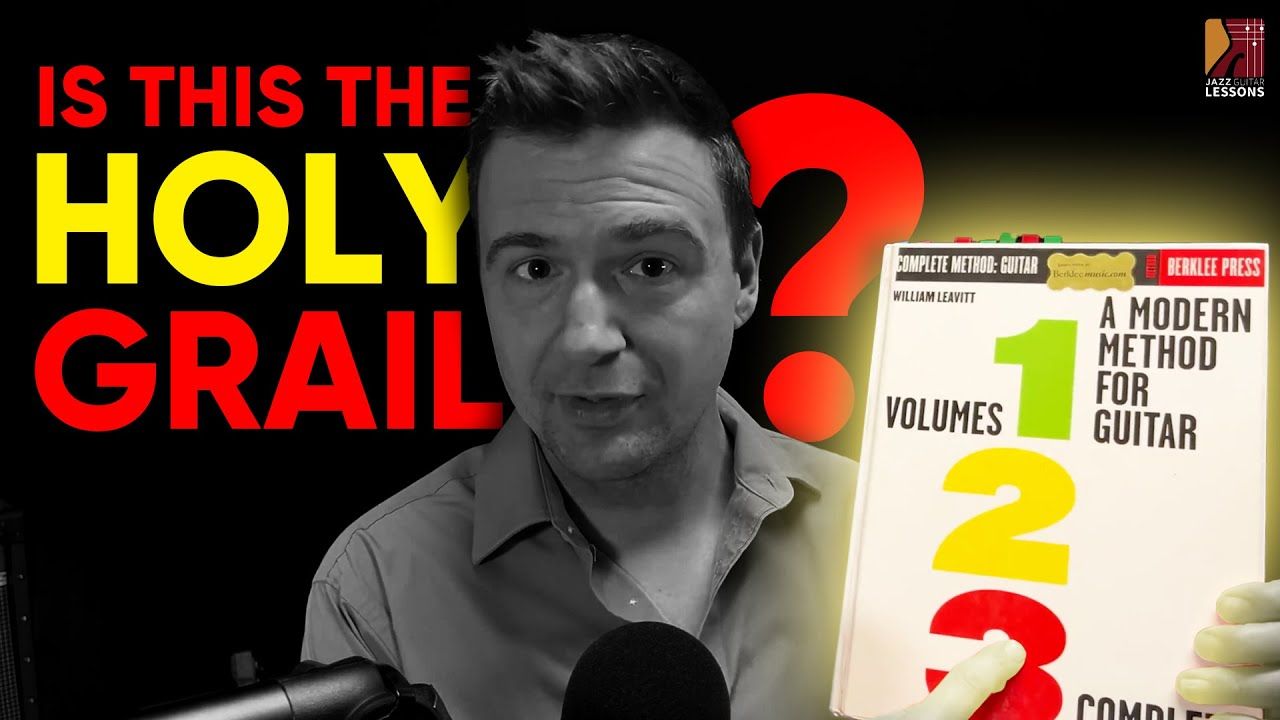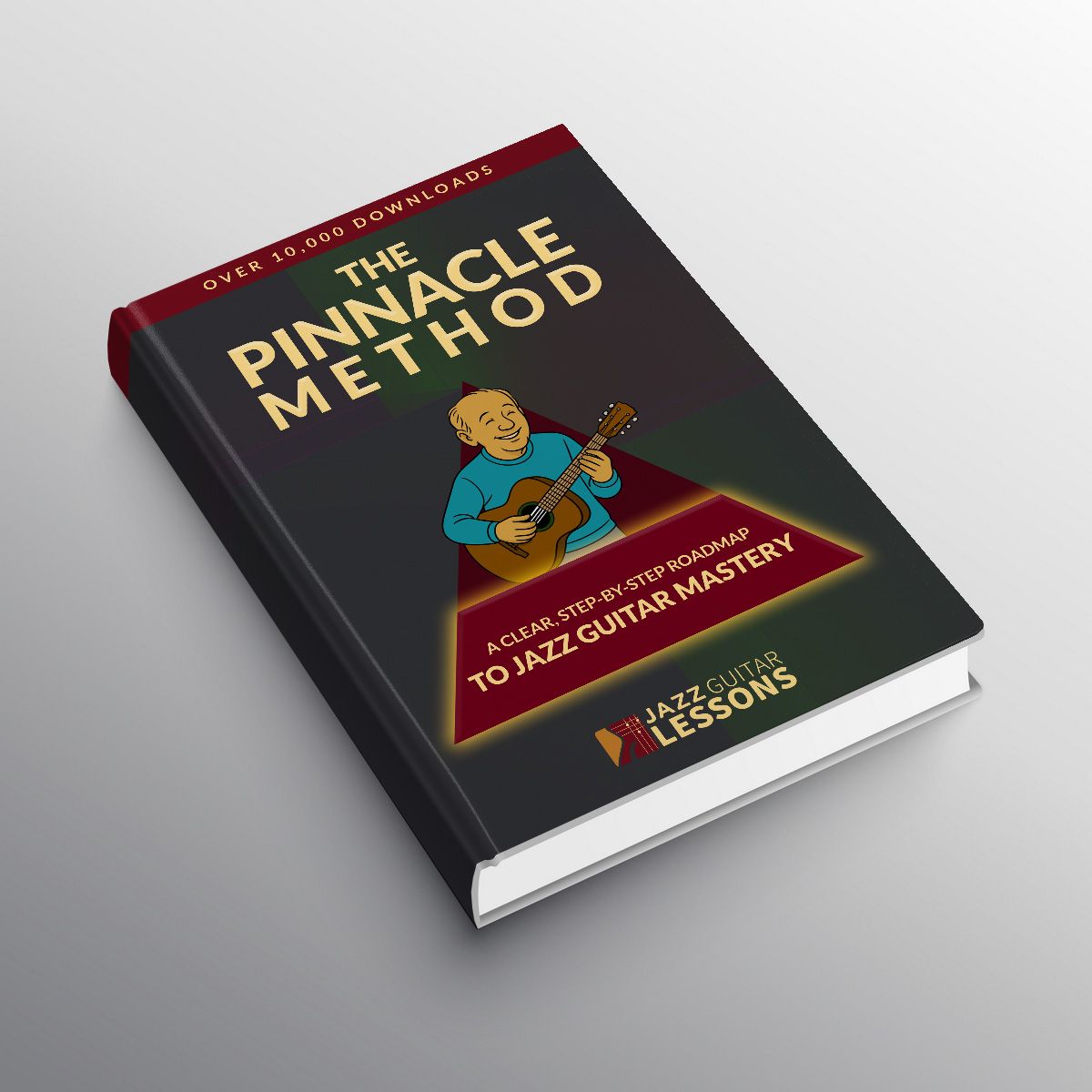
Jazz Guitar Advices I Wish I Knew at 20 Years Old
Apr 09, 2025If I could go back and have a cup of coffee with my 20-year-old self, this is what I’d say. Not some cosmic universal truths—just things I had to learn the hard way over 20+ years of gigging, practicing, failing, and finding my way on the instrument. So, younger Marc, this one’s for you—and maybe for you reading this too.
1. Play a lot. Don’t overthink.
Analysis is important, but you can’t think your way into good time feel. The real growth happens in the doing. Play with a metronome, jam with friends, play along with records. Don’t get stuck in the theory rabbit hole—you can’t solve jazz with spreadsheets.
2. Perfectionism kills creativity.
Trying to play everything flawlessly will freeze you. Aim for expression, not flawlessness. Perfectionism is a moving target, and your ears evolve faster than your hands. So you’ll always hear new flaws. That’s growth, not failure.
3. How you play matters more than what you play.
A simple arpeggio played with good time, tone, and phrasing can sound amazing. Don’t underestimate nuance: vibrato, dynamics, articulation. These things elevate your playing far more than fancy notes ever will.
4. Relationships get the gigs. Not just your chops.
People work with people they like. Be on time, be kind, know your tunes. I’ve seen less technically proficient players get called simply because they’re easy to work with. Don’t just build your skills—build community.
5. Say yes. Make the call. Take the gig.
Fear holds so many of us back. Take the gig before you feel ready. You’ll grow faster than you think. Momentum starts with action. One phone call or one jam session can change your whole trajectory.
6. One jam session = six months in the practice room.
You’ll never simulate the chaos and adrenaline of playing with others. Real-time reactions, unexpected changes, the energy of the room—that’s where the learning lives. Make the jam your classroom.
7. This is self-expression. Play like it.
We’re not machines. Jazz isn’t a math problem—it’s a language, a vibe, an emotional experience. Play like you mean it. Let yourself feel joy, frustration, playfulness. That’s the real content of your solo.
8. No one remembers your mistakes but you.
You will obsess over your missed notes. No one else will. Focus on what went right. The audience remembers energy and vibe, not the one note you flubbed in bar 37.
9. Listen. Like, really listen.
To the masters. To your bandmates. To yourself. Put away the sheet music and let the sound guide you. The ears come first. Train them like crazy.
10. Go out and see live jazz.
You can’t replicate the magic of a real gig. Watch body language. Feel the room shift. Soak in the vibe. It’s one of the best motivators and educators there is.
11. Short, focused practice wins.
Long, unfocused woodshed sessions often do less than 20 minutes of mindful, targeted practice. Use timers. Set goals. Keep it lean and effective.
12. You can’t multitask deep practice.
Switching between topics kills your focus. Deep work needs presence. Choose one thing, go deep, and let your mind absorb it fully.
13. A few tasty voicings beat a hundred flashy ones.
Restraint is powerful. Play fewer chords, but make each one count. Comping is about support, not showing off your library of drop 2s.
14. Gear doesn’t change who you are.
A new pedal won’t fix your phrasing. A boutique amp won’t make you listen better. Your tone is in your hands and your ears. Start there.
15. If people keep asking for a tune—learn it.
Three strikes and you’re out. If a tune keeps coming up at jams or gigs, don’t keep dodging it. Learn it. It’s a sign from the universe.
16. Tunes are the real classroom.
Standards contain all the harmony you need to master. Practice scales and arpeggios within songs. That’s how you internalize them. Theory becomes real when it's tied to melody and form.
17. Play fast and slow. Both are hard.
Blazing tempos test your reflexes, but ballads test your taste. Slow tunes demand control, space, and deep time feel. Don’t avoid them.
18. Context is everything.
A D7 chord means different things depending on the tune. Labels matter less than direction and function. Learn to hear where things come from and where they’re going.
19. Your music reflects your life.
Feeling unsure or insecure in life? It shows in your playing. Be curious about how your mindset shapes your music. Growth in one often mirrors growth in the other.
20. Mastery looks calm.
The best players don’t look like they’re trying. Don’t confuse effort with effectiveness. Train for grace under pressure. Make it look and feel easy.
21. Get great in one key first.
Before you go nuts trying to transpose everything, make sure you really own one key. Know the voicings, the scales, the lines. Then expand.
22. Your ears know more than theory.
Recognize sounds by how they feel, not just what they’re called. Labels are useful after the fact. Lead with sound. Label later.
23. One idea = many angles.
The best musicians milk every idea dry. See how a line works over different changes. Flip voicings. Modify rhythms. Dig deep, not wide.
24. Don’t overrate your bad nights—or your good ones.
Neither failure nor triumph is final. Learn from both and keep moving. Your journey is way longer than one gig.
25. Leave space in your solos.
Space is punctuation. It makes your ideas breathe. Let the music settle. Rest between lines. That’s where the emotional release lives.
I hope this hits home—whether you’re 20, 41 (like I am now), or 67. We're all just figuring it out, one tune at a time.
And if any of this resonates with you, come hang out at our community. We’ve got tons of free lessons, podcasts, and community to help you on the journey.
See you soon,
—Marc


